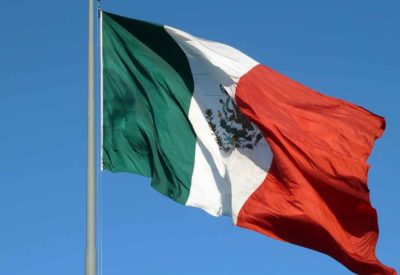Mexican Committee rejects same-sex law. A strong message to the government, and to the UN.

Perhaps, national marches work: at least, they do in Mexico.
Last Wednesday, the Mexican Congressional Committee on Constitutional Matters decided to reject the president’s proposal to legalize same-sex marriage.
Peña Nieto’s measure, announced last May, was defeated 19-8, with one abstention. As reported, the proposal of the President led to unprecedented popular demonstrations, and by an incredible joint effort of civil society organizations. Last September, hundreds of thousands of Mexicans took to the streets – both in their country and abroad – to defend their children, and to protect their right to know and to be cared for by their mother and father.
As the member of the Committee, Deputy Norma Edith Martínez declared before the vote (in a speech that can be viewed here, in Spanish), hundreds of thousands of Mexicans were equally waiting for this decision.
As she recalled, this vote had nothing to do with “love,” nor with discrimination. Legal recognition of same-sex marriage is not a step towards “equality,” but a misunderstanding of the role of the law and of the rights of the family. As Martínez mentioned, the reason why the state protects the family lies in the importance of the full commitment of the spouses (i.e.: “a man and woman”), and on their willingness to bear children, and to care for them. “Marriage is not about feelings,” she says, “rights are not feelings.” Individuals’ desires to be of a different sex are not rights that the law can guarantee: that is utopia.
The Mexican decision of last Wednesday is a “powerful legal, social and cultural message for this and for future generations,” said Martínez.
The National Front for the Family congratulated the members of the Committee, and affirmed: “Today is the time of the people, and this vote shows that when civil society organizes itself in an orderly way, peacefully and responsibly it can mark the destiny of the public policies that aim at the good of society.”
It will be interesting now to see how the Government reacts.
In fact, notwithstanding the marches, and regardless of its laws, Mexico joined a coalition of states that aim at the global promotion of the homosexual agenda last summer. Right now, in the negotiating rooms of the United Nations, Mexico is actively supporting the establishment of the new “Independent Expert” on Sexual Orientation and Gender Identity that the Human Rights Council called for last July. Many countries have criticized this appointment, and are now asking the General Assembly to question the new mandate, which lacks any sort of juridical legitimacy. Argentina, the United States, Europe… and Mexico are fighting back.
The people of Mexico have fought hard to defend the laws of their nation, and the rights of their children.
If the Mexican ambassador to the UN has the power to disregard their sovereign will, then the democracy of the whole international human rights system comes into serious question. The Independent Expert will certainly criticize Mexico for its “homophobic laws,” and the pressure on that same congressional committee will certainly increase.
View online at: https://c-fam.org/turtle_bay/mexican-committee-rejects-sex-law-strong-message-government-un/
© 2024 C-Fam (Center for Family & Human Rights).
Permission granted for unlimited use. Credit required.
www.c-fam.org

